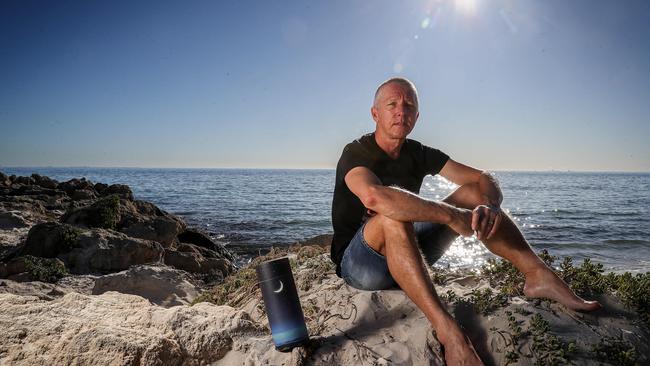Coronavirus: Rites and wrongs of broken mourning
Martin Black couldn’t bear the thought of a tiny funeral of 10 for his beloved father Ralph.

Martin Black couldn’t bear the thought of a tiny funeral of 10 for his beloved father Ralph, who died suddenly in his Perth nursing home during the COVID-19 lockdown. New rules which will permit 20 mourners inside a funeral venue, with 30 standing outside, are being rolled out from Saturday in Queensland and NSW, and began last week in other states.
In Western Australia, where bigger funerals begin on Monday, Mr Black is among those who will still wait to properly farewell the 88-year-old with a big crowd of friends and family, in his case by scattering his ashes at Cottesloe Beach.
Mr Black and his sister sat on her kitchen floor recently, mixing their dad’s ashes with those of their mother who died two years ago. “We used a wooden spoon and a cooking bowl, blending their ashes like we were baking a cake,” says Mr Black. They have already scattered some ashes in places their parents loved “as little milestones along the way”.
Thousands of Australians have suffered what experts call “disenfranchised grieving”. Like Mr Black, they may not have lost their loved one to the virus itself, but they suffered the inability to grieve at a bedside or endured the soul-destroying sight of a handful of people spaced along the pews of a funeral parlour.
The COVID-19 pandemic has significantly disrupted our rituals associated with dying, death and bereavement, says psychotherapist Karen Anderson, who teaches counselling at Edith Cowan University. She has drawn up a list of 10 steps to manage grief when the usual rites of passage are not possible. “Those rites have been interrupted, and a lot of clients have talked about guilt,” she says. “They couldn’t hold the funeral in the way they or their loved one wanted.”
Australian Funeral Directors Association national president Andrew Pinder says funerals and cremations have dropped slightly. While no hard data exists to show whether people are delaying them for a day when large memorial services can be held, “there will be a great need for people to grieve”.
Ms Anderson says feelings of loss are likely to re-emerge “because their processing of the normal grief process has been delayed”.
For Anita Grafton, who lost her 25-year-old son Jordan to cancer two years ago, COVID-19 put an end to plans to take his ashes to Japan, his favourite place. Then, on April 5, her 94-year-old father, Fredrich, died.
She and her 11 brothers and sisters held a limited ceremony for their father. About 85 “close” family members were excluded. “It was so cruel — it caused a lot of stress and we’re still not over it,” Ms Grafton says. “The only people who could sit together and hug were mum and the three siblings who cared for her.”
Ms Anderson’s tips for coping include to create your own rituals to commemorate your loved one; not to let guilt in and remember that COVID-19, not you, was the reason you couldn’t grieve and commemorate in the usual way.



To join the conversation, please log in. Don't have an account? Register
Join the conversation, you are commenting as Logout